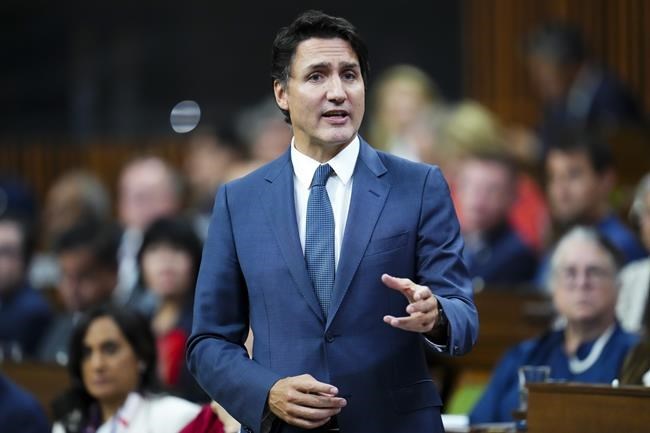OTTAWA — The federal government's new dental insurance plan has yet to be introduced, but advocates are warning the eligibility criteria for people with disabilities could be cumbersome and may not capture everyone who should have access to the program.
The details of the insurance plan are expected to be announced this fall, with a goal to eventually provide dental benefits to qualifying kids under the age of 18, seniors and people with disabilities.
The Liberals promised in their supply-and-confidence agreement with the NDP that dental coverage will ultimately be offered to all people with a household income under $90,000 per year by the end of 2024.
The government hasn't said how people will be required to prove that they're disabled in order to qualify for the insurance plan.
But it typically relies on the list of people who access the disability tax credit to determine who should receive other disability-related programs, said Disability Without Poverty national director Rabia Khedr.
The list of people who access the tax credit "is not the best list for them to work from," because it doesn't always capture the people with disabilities who could benefit most from the dental program, she said in an interview Friday.
"It's incumbent on people filing their taxes," she explained, which many people with especially low incomes don't do.
Even those who file their taxes may not qualify or even bother to apply for the tax credit because they don't have the resources.
"You have to fill get medical forms filled out. Doctors may even charge a fee to do those forms," she said.
"Many, many people with different types of disabilities don't qualify. If their disabilities are episodic, if their disabilities are temporary, it's not an easy thing to qualify for."
A 2018 study published by the University of Calgary found only 40 per cent of working-age adults with qualifying disabilities were actually able to access the credit.
The authors, Stephanie Dunn and Jennifer Zwicker, found there were several barriers for people with disabilities to apply, including the complexity of the application process and the fact that for some, the high application costs outweigh the benefits.
Health Minister Mark Holland wouldn't shed any light on whether the government is considering other options to determine eligibility for the program, but said he would like it to be as frictionless as possible.
"Where something is medically necessary for somebody's oral health, we want to make sure that regardless of your circumstance — certainly if somebody has additional issues, is facing a disability — that there's flexibility within the system to make sure that people get the care that they need," Holland said in an interview.
NDP health critic Don Davies said that ideally, anyone who falls under the income threshold and receives provincial disability support would qualify, but it would be difficult to create a system to allow that in just one year.
"We have been advocating for the broader definition but we have to be alive to the practical realities of things," Davies said in an interview.
Since everyone who meets the income requirements would qualify for the dental plan by the end of next year, the problem will be short-lived, Davies said.
"It's a policy question that has a shelf life and implication of maximum 12 months," he said.
In that case, Khedr said the government should fast-track eligibility to make the dental coverage as accessible as possible.
"This can be life saving for people. It's about their quality of life. It's about their dignity."
The Canadian Society for Disability & Oral Health says people with disabilities have several systemic and practical barriers to accessing the oral-health care that they need, including insufficient funding.
For some, simply finding a dentist's office that is physically and functionally accessible can be a challenge.
Davies said one of the reasons people with disabilities were singled out for coverage was to make sure that their oral health needs are given special consideration as the plan is designed.
For example, procedures may take longer for people with certain disabilities compared to what dental plans typically offer.
"This is something I've been battling on," he said. "To me, it's more about learning those lessons and making sure that the plan is responsive, at least as much as it can be."
This report by The Canadian Press was first published Oct. 6, 2023.
Laura Osman, The Canadian Press



